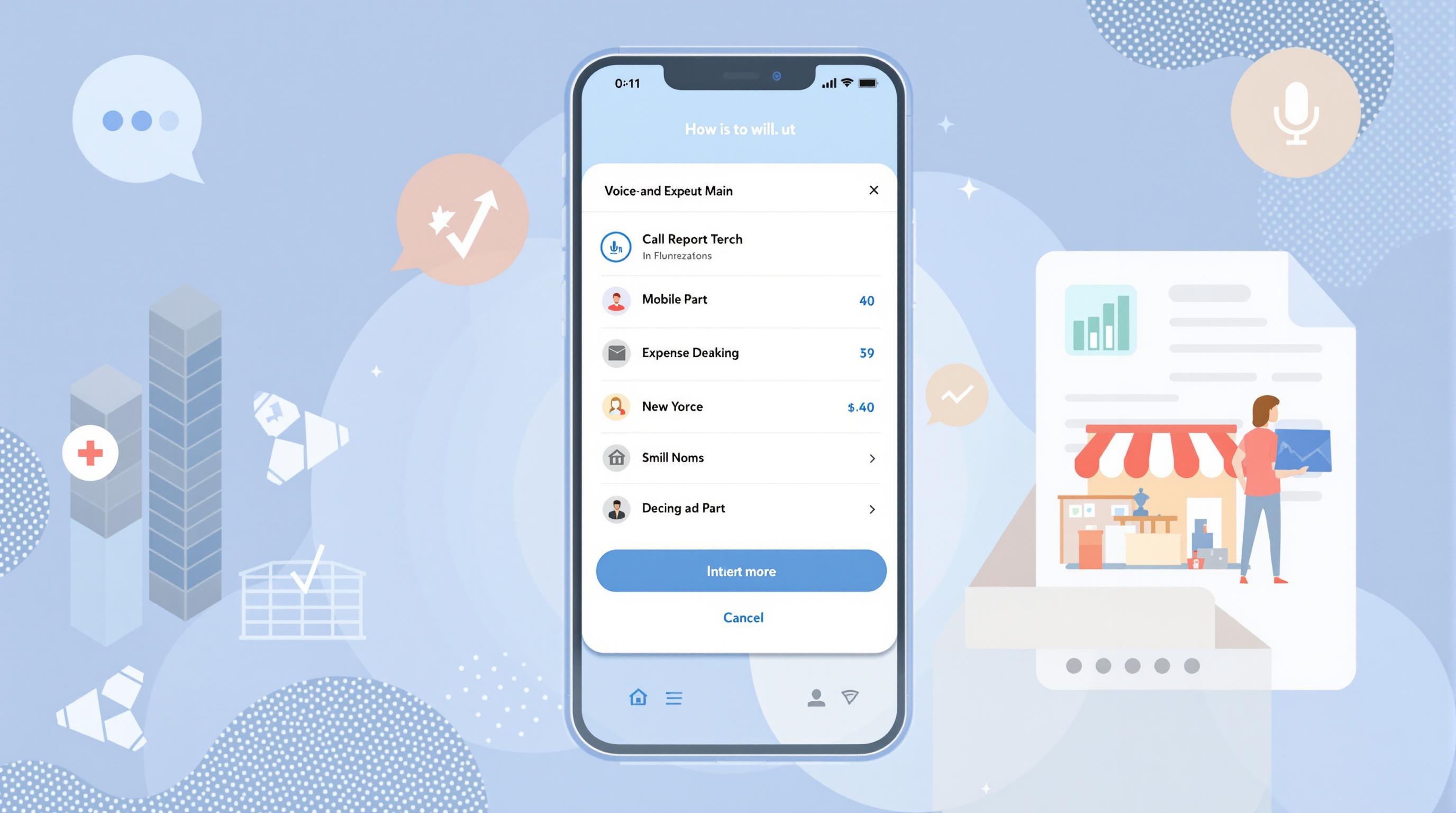Related Articles
- How Mobile Accounting Influences Entrepreneurial Mental Health and Work-Life Balance in Gig Economies
- The Quiet Costs: How Mismanaged Time Data Quietly Undermines Small Business Growth and Decision Making
- Top 5 Trailblazing AI-Powered Financial Reporting Apps Revolutionizing Accuracy and Speed Since 2019
- How Behavioral Economics Shapes Decision-Making in Financial Record Matching and Discrepancy Resolution
- How Subtle Shifts in Supplier Relationships Secretly Affect Your Company's Financial Health and Liquidity Balance
- Top 6 Payroll Solutions Born in the Last Five Years That Are Quietly Taking the Gig Economy by Storm
5 Futuristic Mobile Accounting Features Unlocking Hidden Financial Insights for Small Enterprises in 2024
5 Futuristic Mobile Accounting Features Unlocking Hidden Financial Insights for Small Enterprises in 2024
5 Futuristic Mobile Accounting Features Unlocking Hidden Financial Insights for Small Enterprises in 2024
Introduction: The Evolution of Mobile Accounting
As small enterprises continue to embrace digital transformation, mobile accounting has emerged as a crucial tool for managing finances on the go. In 2024, mobile accounting apps are no longer just about recording transactions; they are evolving into powerful platforms that uncover hidden financial insights. This evolution allows small business owners to make data-driven decisions quickly and efficiently.
With advancements in artificial intelligence (AI), machine learning, and cloud computing, mobile accounting software now offers features that simplify complex financial analyses. These features are designed to provide small enterprises with actionable insights that were previously available only to larger corporations with dedicated finance teams.
Understanding these futuristic features can help small business owners leverage technology to optimize their financial health and identify opportunities for growth. Let’s explore the five key mobile accounting features that are unlocking hidden financial insights in 2024.
1. AI-Powered Predictive Analytics
One of the most transformative features in 2024’s mobile accounting apps is AI-powered predictive analytics. This technology analyzes historical financial data to forecast future trends, such as cash flow fluctuations, sales projections, and expense patterns. Small enterprises can use these forecasts to anticipate challenges and opportunities.
Predictive analytics helps businesses plan budgets more accurately and make informed decisions about inventory management, staffing, and marketing investments. By identifying potential financial risks before they arise, small business owners can take proactive measures to mitigate them.
According to a report by Forbes, AI in accounting is expected to reduce financial mismanagement by up to 40% by automating complex data analysis processes, giving businesses a competitive edge in managing finances effectively.
2. Real-Time Expense Tracking with Smart Categorization
Real-time expense tracking has become more intelligent with features that automatically categorize transactions using machine learning algorithms. This means each expense is assigned to the correct budget category without manual input, saving time and reducing human errors.
Additionally, these apps provide instant notifications when transactions deviate from typical spending patterns, helping small enterprises identify unusual activities or potential fraud quickly. The immediacy of data updates ensures that business owners always have an accurate picture of their financial status.
Gartner highlights that by 2024, 85% of financial tracking systems will implement automated categorization, significantly enhancing financial transparency for small businesses.
3. Voice-Activated Financial Management
Voice recognition technology has entered the realm of mobile accounting, allowing users to input data, query financial statuses, and generate reports through simple voice commands. This hands-free approach enhances accessibility and convenience for busy entrepreneurs.
For example, a business owner can ask, “What were my total expenses last month?” and receive an instant summary. This feature leverages natural language processing (NLP) to interpret queries and deliver accurate responses, reducing the learning curve associated with complex accounting tools.
TechCrunch reports that voice-activated accounting interfaces are anticipated to increase efficiency in small business financial management by cutting down on manual data entry time by up to 30%.
4. Integrated Cash Flow Management Tools
Effective cash flow management remains a critical challenge for small enterprises. The latest mobile accounting platforms integrate cash flow management tools that consolidate receivables, payables, and bank transactions in one dashboard.
This integration allows business owners to visualize real-time cash positions, set customizable alerts for low balances, and simulate the impact of upcoming financial decisions. It supports better planning and helps avoid liquidity crises that can disrupt operations.
According to the Small Business Administration (SBA), maintaining healthy cash flow is one of the top factors that determine business survival, making this integration a vital asset for small enterprises.
5. Enhanced Security Features with Biometric Access
Security remains a top priority as mobile accounting apps handle sensitive financial data. In 2024, biometric authentication methods like fingerprint scanning and facial recognition are standard features to safeguard access to accounting platforms.
These features not only prevent unauthorized access but also streamline the login process for business owners. Coupled with end-to-end encryption, biometric security ensures financial data is protected from cyber threats, fostering trust in mobile solutions.
Research from the Cybersecurity and Infrastructure Security Agency (CISA) indicates that biometric authentication can reduce the risk of data breaches by nearly 50%, underscoring its importance in financial technology.
6. Automated Tax Compliance and Filing Assistance
Tax season is often stressful for small enterprises, but futuristic mobile accounting apps are easing this burden through automated tax compliance features. These tools track relevant tax deadlines, calculate liabilities, and even prepare filing documents.
By integrating with government tax portals, these apps can submit returns directly, reducing errors and penalties. The automation also adapts to changing tax laws, ensuring that businesses always remain compliant without needing extensive tax expertise.
According to Intuit, automation in tax filing processes has reduced small business tax preparation time by 40%, increasing efficiency and lowering operational stress.
7. Collaborative Financial Dashboards
Modern mobile accounting apps feature collaborative dashboards that allow small business owners to share financial insights with their accountants, partners, or team members in real-time. This fosters transparent communication and coordinated financial planning.
Users can set different permission levels to control who sees sensitive information, enhancing collaborative efforts without compromising security. This feature ensures that financial decisions are made collectively with up-to-date data at everyone’s fingertips.
Harvard Business Review emphasizes that collaborative tools enhance small business agility by 25%, as stakeholders respond more swiftly to financial challenges and opportunities.
8. Smart Invoice Management with Payment Reminders
Invoice management has been revolutionized by smart features that automatically generate, send, and track invoices. These tools use AI to suggest optimal payment terms based on customer behavior and industry standards.
Automated payment reminders reduce delayed payments, improving cash flow stability for small enterprises. Additionally, integrated payment gateways allow customers to pay directly through the invoice, streamlining the entire billing cycle.
Research from the Accounts Receivable Management Association shows that smart invoicing can decrease overdue payments by up to 35%, contributing to healthier business finances.
9. Cross-Platform Synchronization Across Devices
Small business owners often use multiple devices to manage operations. Cross-platform synchronization ensures that financial data is consistently updated across smartphones, tablets, and desktops.
This seamless integration eliminates data discrepancies and enables users to switch devices without losing continuity. Cloud-based architecture supports real-time syncing, making accounting data accessible anytime and anywhere.
Statista reports that over 75% of small enterprises consider multi-device synchronization essential for efficient workflow in 2024, reflecting its growing adoption.
10. Intuitive Financial Health Scores and Recommendations
Finally, futuristic apps provide small enterprises with financial health scores based on comprehensive analyses of income, expenses, debt levels, and liquidity. These scores offer a simple indicator of overall financial status.
Beyond scoring, apps suggest actionable recommendations such as cost-cutting measures, investment opportunities, or credit improvements. This personalized guidance empowers business owners to improve their financial standing strategically.
According to a report by Deloitte, businesses utilizing financial health tools saw an average revenue increase of 15%, highlighting the practical benefits of these insights.




